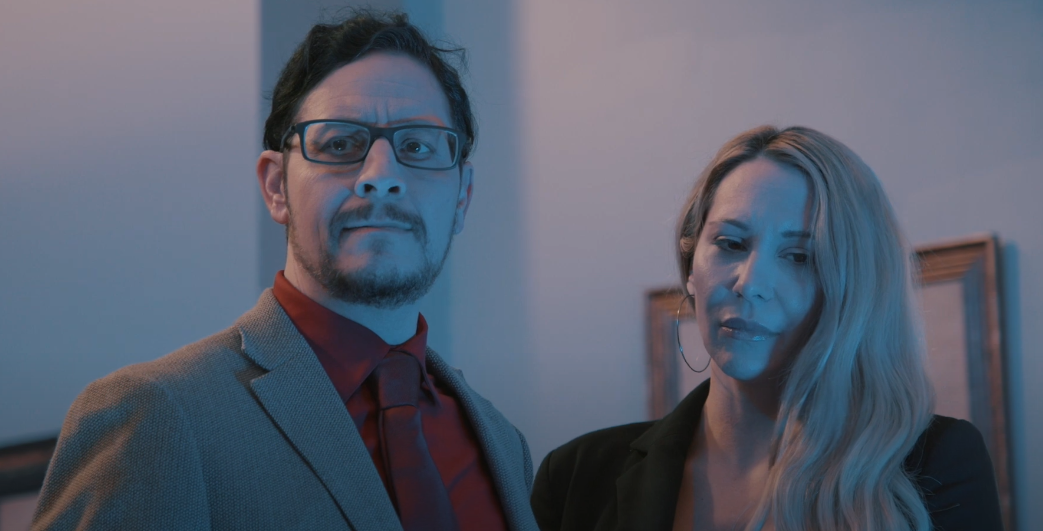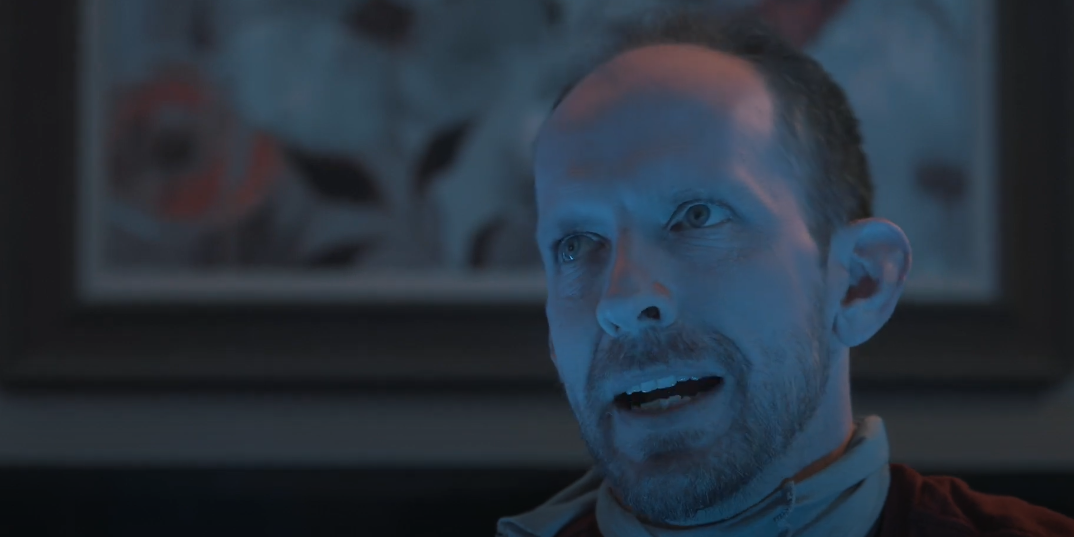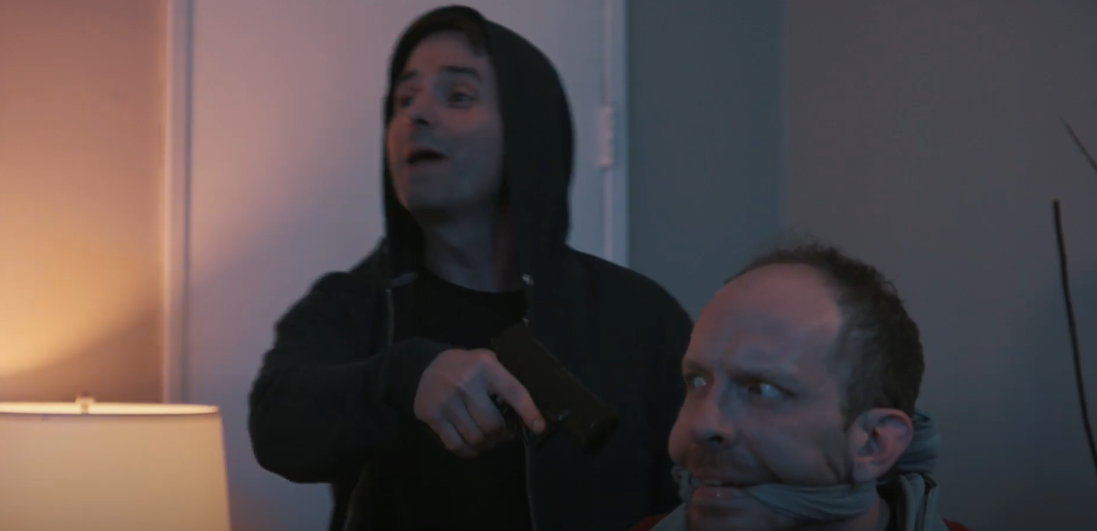Geno McGahee’s Fatal Justice sets up a provocative premise: what happens when a grieving family decides to take the law into their own hands? After the murder of their daughter, the Murphy family reels from a justice system that lets the prime suspect walk free. In a rash move, hot-headed Uncle Phil (Shane Ryan-Reid) kidnaps the accused man, Dennis (Eric Michaelian), and drags him into a family gathering. What follows is a long night of improvised justice—equal parts trial, interrogation, and raw emotional meltdown.
On paper, this is a compelling thriller concept. McGahee clearly wants to explore moral gray areas: the thin line between righteous anger and reckless vengeance, and the way grief distorts judgment. At times, the film leans into this with intensity. The “family trial” centerpiece, where Dennis pleads for his life and the Murphy clan debates his guilt, is the highlight. Eric Michaelian as Dennis gives the most grounded performance, managing to inject some ambiguity—could he be innocent, or just a manipulator? That tension sustains much of the runtime.
But Fatal Justice is also a film that often entertains for the wrong reasons. The script is heavy with clunky exposition and lines that repeat the phrase “family justice” so often you wonder why that wasn’t the title. Performances vary wildly, with several cast members delivering dialogue in awkward beats, often pausing a couple of seconds too long before reacting. The result is a pacing that sometimes feels like watching a staged reading rather than a tense thriller.
Visually, the film makes some strange choices—many scenes are bathed in distracting blue or red light for no clear reason, and transitions occasionally shift color tones abruptly, adding to the unpolished feel. The “twist” ending, which questions everything the family just went through, lands more as an unearned gag than a shocking revelation. And then there are the unintentionally cringeworthy moments—one late scene where the family patriarch hurls a grotesque insult at his granddaughters is more jaw-dropping than dramatic, and not in the way McGahee likely intended.
Still, despite its rough edges, Fatal Justice never stops being watchable. It’s “bad,” but in the kind of way that keeps you glued, waiting to see what odd decision or melodramatic outburst will come next. At just under two hours, it’s surprisingly easy to sit through—an oddity that’s equal parts family melodrama, vigilante thriller, and accidental comedy.
For viewers who enjoy low-budget thrillers with ambition that far exceeds execution, Fatal Justice is a strangely entertaining ride. For everyone else, it may feel like a missed opportunity, a story with genuine dramatic potential that gets lost in stiff performances, clumsy writing, and tonal missteps.
Verdict: A flawed but oddly captivating family-vigilante thriller. More cringe than craft, but never dull.
Jessie Hobson




